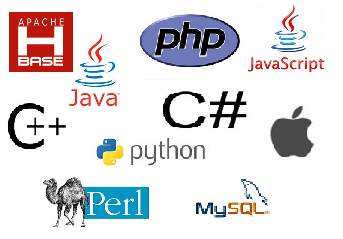How to be a better programmer
Skilled programmers are always in great demand in the tech world, and they are always wanted by the programming fraternity. This demand is in no way going to slow down in the near future, so if you are looking to become a programmer in a reputed tech company, you’ve made the right career choice.
Here are 10 simple tips on how to become a better programmer:
1. Keep in cue with the rapidly changing technologies
As a programmer, you must be in tune with the newest technologies because tech companies are always focussed on quick delivery and timely launches, apart from having happy stakeholders and satisfied customers. A programmer who is skilled in the latest technology will always land with the highest paying job.
2. Extra effort to hone your programming skills
It is important to code frequently and to code in the real world. Put in as many hours as possible to improve your programming skills. A successful programmer should not just learn to do something, he/she should be able to understand how things work in their intricate detailing. This is how they can provide coding solutions to real world problems. When a programmer goes into the deeper layer, he/she will be able to put in a personal touch to the projects.
3. Learn more than one programming language
You become a programmer when you learn one programming language. But that shouldn’t be the end of it, as technology is constantly evolving and at an unprecedented pace. You can be a truly successful programmer if you know several programming language, as it would not only keep your career opportunities high, but it would also definitely make you an asset to the company you are working for. And this in turn, would improve your salary potential, because companies would want someone who they can switch between projects.
And that’s not all. Even a single project would require a mashup of languages. Look at Facebook for instance, it uses JavaScript for front end, Hack, PHP, C++, Java, Python, Erlang, D, Xhp and Haskell for back-end and MySQL, HBase and Cassandra, for its database.
4. Join open source communities and contribute in them
A programmer cannot live in an island and become good at his job. He/She needs to join in all the major open source communities to give and collect feedback, to learn about the latest trends in technology and exchange ideas. This would not only keep them in the loop of what is happening in the programming world, but avoid a burnout as well.
5. Making your knowledge of data structures and algorithms perfect
In order to become a better programmer, you must have immaculate knowledge of data structures and algorithms. This would help you solve a great number of problems that might hinder with your project. Computers rely on fundamental data structures and algorithms, this would help you understand your computer better, and fix problem spaces as and when required.
The main aspects that come into data structures and algorithms are:
- Sort algorithms
- Search algorithms
- Hashing
- Dynamic programming
- Exponentiation by squaring
- String matching and parsing
- Primality testing algorithm
6. Be an avid reader of blogs
Every programmer should read blogs that would contribute to improving their skills. Blogs like the Coding Horror, The Crazy Programmer, Code Better, Endjin and Joel on Software are just a few of the many good blogs that you will find online. These blogs contain tutorials, research material and tips on how you can write better codes. Subscribe to them, and this way, you will never be out of the loop. What’s more, you will even be able to develop your own tricks and tools. Maintaining one’s own blog is also a good idea to share your views with others.
7. Do a code review
Anybody can write a code that can be read by a computer, but it is important to write a code that humans understand. Code review meetings must be conducted regularly to make incremental improvements in the code. You may be in a mad rush to meet the deadlines, but doing code reviews can actually improve your own coding skills. Code reviews are also helpful if you are to train new developers and introduce your peers with other modules. And of course, it brings about a culture of quality for your project.
8. Don’t waste too much time on the fluff
Do you need to spend time perfecting your code? This is a question every programmer has, and we suggest that you should not spend too much time focussing on a code, but rather on the core problems. Codes are likely to change over time, so think more about your layers of abstraction, rather.
9. Think about the business side as well
Releasing a successful software is the business objective. Learn to uncover new approaches and improvements that will complement the business side of your organisation. As a programmer, you should maintain good relationship with the business department, including the shareholder, if possible. This will help you design a system that will scale your business, and if you persist, you might be able to uncover new opportunities that might awe the non-technical managers.
10. Disengage once in a while
New techs are coming out every day, you might feel pressured to keep track of what’s happening by never taking a day off. But it is also important to disengage once in a while to become a better programmer. You will have better perspectives and fresh ideas when you take a break, so taking a vacation will not put you behind work, but rather right on track.
Conclusion
The progression from junior to intermediate and then a senior programmer will depend on how good a programmer you are. A junior programmer will need someone to guide them until they learn to hone their skills; an intermediate programmer will be able to polish his skills as he works, and require minimal supervision to help achieve business goals of his organisation. Once you become a senior programmer, you can easily relate to the business value of your organisation, while progressing your skills at the same time. This is how you grow as a programmer.
We have some more information’s
Flickr / Rafa Berlanga, burhan rehman




